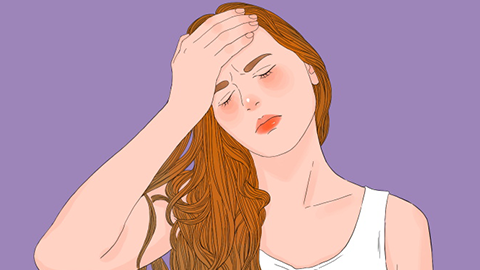What should I do if I have a headache due to exposure to wind during the postpartum confinement period?
Headaches caused by exposure to wind during the postpartum confinement period can be relieved through methods such as keeping the head warm, gentle massage, warm compresses, adjusting sleep patterns, and dietary regulation. Avoid aggressive treatments and prioritize mild approaches suitable for the body's condition during the postpartum recovery phase. If the headache persists for more than three days or is accompanied by fever or vomiting, prompt medical attention is recommended.
1. Keep the head warm: Immediately wear a hat or wrap the head with a scarf to prevent further exposure to wind, paying special attention to the forehead, temples, and back of the neck. This reduces cold air stimulation on blood vessels in the head and helps relieve headaches caused by blood vessel constriction.
2. Gentle massage: Use your fingertips to gently massage the temples and Fengchi points (the depressions at the base of the skull). Apply pressure until a mild soreness is felt. Massage for 5–10 minutes each time to promote blood circulation in the head, relax tense muscles, and reduce pain.

3. Warm compress: Apply a warm towel at around 40°C to the forehead or back of the neck for 15 minutes per session. The warmth helps dilate blood vessels in the head, improves local blood flow, and relieves spasmodic headaches caused by cold exposure. Be careful not to use excessive heat that may burn the skin.
4. Adjust daily routine: Ensure adequate sleep and avoid staying up late or overexertion. Allow the body sufficient rest to support natural healing and reduce headache exacerbation due to fatigue. Maintain a quiet environment with soft lighting in the bedroom during rest.
5. Dietary adjustment: Drink warm beverages such as brown sugar ginger tea or red date longan water in moderation. Brown sugar ginger tea helps dispel cold and warm the body, while red date longan water nourishes qi and blood, both aiding in relieving headaches caused by qi-blood deficiency or invasion of wind-cold. Avoid cold or chilled drinks.
In daily life, ensure proper ventilation in the bedroom while avoiding direct exposure to drafts. Change into dry clothes promptly after sweating. Move slowly when getting up or engaging in light activity to prevent sudden movements that may cause dizziness or discomfort. Maintain emotional calmness and avoid anxiety, which may worsen headaches.






